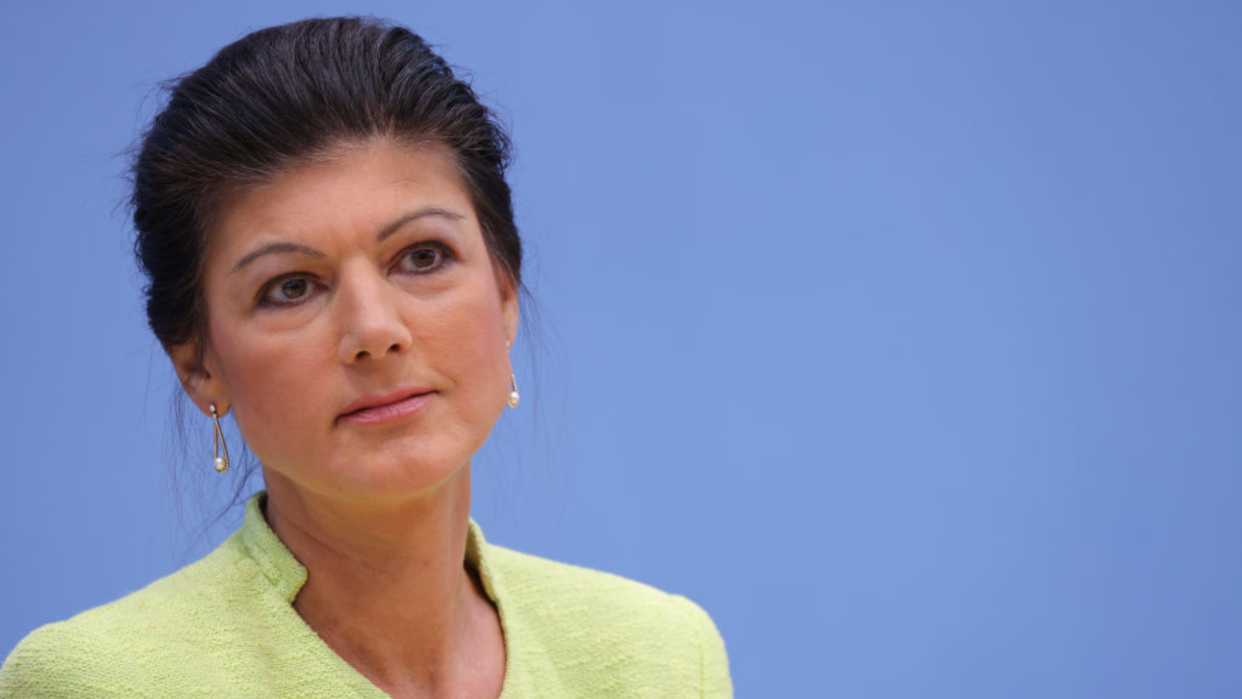Sahra Wagenknecht: changing the face of German politics

- Oops!Something went wrong.Please try again later.
Die Unfassbare – the incredible one. That was the headline that Germany's leading news weekly, Der Spiegel, used to describe the political phenomenon that is Sahra Wagenknecht, said Elena Sevillano in El País (Madrid). The 54-year-old left-wing leader is one of the country's most charismatic politicians, with a huge following among voters disillusioned with mainstream politics, and she has now announced her departure from the Left Party to form her own party, the Sahra Wagenknecht Alliance. This "has caused an earthquake in the German political landscape". But what she and her new party really believe remains a mystery. "Incredible" in every sense.
The background
Actually, we know quite a lot about her and her beliefs, said Guy Chazan in the FT. Born in the former East Germany to an Iranian father and German mother, she started out as an old-school commie before joining the post-communists of the Left Party, which her husband, former SPD leader Oskar Lafontaine, had helped create. But she'd always been a difficult fit there, often complaining about the party's green climate agenda and its support for immigration.
Her new party is explicitly intended as a counterpoint to the hard-right populist Alternative for Germany (AfD). It will be the home, she grandly announced last week, of voters tempted to vote AfD "out of fury and desperation", but turned off by its far-right links.
There's a lot of overlap between the two, said Stephanie Munk in the Frankfurter Rundschau. Like the AfD, Wagenknecht backs anti-vaxxers, has contempt for the EU and rails against immigration – though she's keen to stress that this is born not out of racism but a desire to protect German workers' jobs. And she outdoes the AfD in both her opposition to Nato and her pro-Russia stance.
Where she differs with those populists is on domestic policy: Wagenknecht is a true anti-capitalist who wants to soak the rich and expand the welfare state. She's "economically Left, socio-politically Right" – a hybrid postwar Germany has never seen before.
The reaction
Yet the formula is not new to modern Europe, said Thorsten Knuf in the Berliner Morgenpost. We have seen it in France, where Jean-Luc Mélenchon, whom Wagenknecht cites as her role model, created the leftist-nationalist France Unbowed. He, too, is a former communist who combines a hatred of Nato with a yen for high taxes – and he's doing pretty well, with his coalition taking 25.6% of the vote in the last French legislative elections.
But can Wagenknecht really carry a party all on her own? Early polls may have shown a remarkable average of 14% support, said Johannes Fehr in the EU Observer (Brussels), but frankly, hers is "less of a party and more of a personality cult". As its full name (Alliance Sahra Wagenknecht – For Reason and Justice) implies, it seems to stand for whatever Wagenknecht happens to believe is reasonable and just. It's fairly creepy.
A woman who has always been happy to claim that "misery in Germany is the fault of 'newcomers'" is more than likely – now that she's "unshackled from her former party" – to ramp up this xenophobic rhetoric. At this time of social and economic upheaval, her brand of self-centred cynicism is "the last thing" that Germans need.

